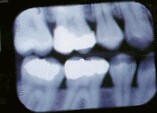
FRIDAY, Aug. 10 (HealthDay News) — New research paints a grim picture of the oral health status of adults with intellectual and developmental disabilities. One-third have untreated cavities, 80 percent have gum disease and 10 percent are missing some teeth, the study found.
A growing body of research suggests that oral health affects overall health, and dental issues go far beyond a person’s smile. These latest findings appear in the August issue of the Journal of the American Dental Association.
Reasons for the poor oral health among adults with intellectual and developmental disabilities are not always easy to sort out, said study author Dr. John Morgan, an associate professor in the department of public health and community service at Tufts University School of Dental Medicine in Boston. Part of it is rooted in poor communication. Many don’t fully understand what they should be doing to take care of their mouth, and some may not have the manual dexterity needed to do so. Others may be taking medication that causes dry mouth, which increases risk for cavities and other oral health problems, he said.
Researchers mined electronic dental records of over 4,700 people with intellectual and developmental disabilities taken from a network of Massachusetts dental clinics that serve this group. Among these patients, 61 percent were reported to have a mild to moderate disability, and 39 percent had a severe disability. One-quarter had a limited ability to withstand any dental intervention and required special resources such as general anesthesia. Almost 40 percent needed some form of behavioral assistance to undergo a dental procedure, the study showed.
Often, the caregiver serves as the middleman. “Caregivers can make the whole issue more difficult because rather than saying ‘I would like you to brush your teeth this way three times a day’ directly to the patient, we have to tell the caregiver,” Morgan said.
To explore that issue, he and his colleagues are interviewing 800 people who are caregivers of intellectually and developmentally disabled adults to see where the communication gaps lie.
Meanwhile, the current study provides “more reliable numbers on the degree to which intellectually and developmentally disabled individuals are at lower oral health status than the rest of the population,” said Dr. Edmond Hewlett, a professor at the School of Dentistry at the University of California, Los Angeles, and an American Dental Association spokesperson. “They are more likely to have poor oral health in general including gum disease and untreated decay.”
This may be related to their ability to care for themselves.
“Some may be cognitively fine and may have physical limitations and other people may have behavioral limitations,” Hewlett said. This issue is further complicated by the fact that so many developmentally disabled people are also economically and socially disadvantaged.
“There is increased evidence about the direct link between oral health and general health,” he said. “If an infection in the mouth is left untreated, it could spread through the body and become a bigger issue.”
Part of the onus falls on educators who need to teach dental students about the needs of this special population and encourage outreach, experts agree.
“This population is high risk for oral disease usually due to their disabilities in terms of home care and sometimes due to cognitive [brain] and or emotional issues, which make it challenging and more expensive to treat them in conventional office settings,” said Saul Pressner, a dentist in private practice in New York City. “We need more in the way of funding for more training programs to help dentists feel more comfortable treating these patients. We also need more facilities that are better equipped to meet these needs and dentists to volunteer their time to help meet this important unmet need. “
More information
Visit the American Dental Association to learn more about special care dentistry.

